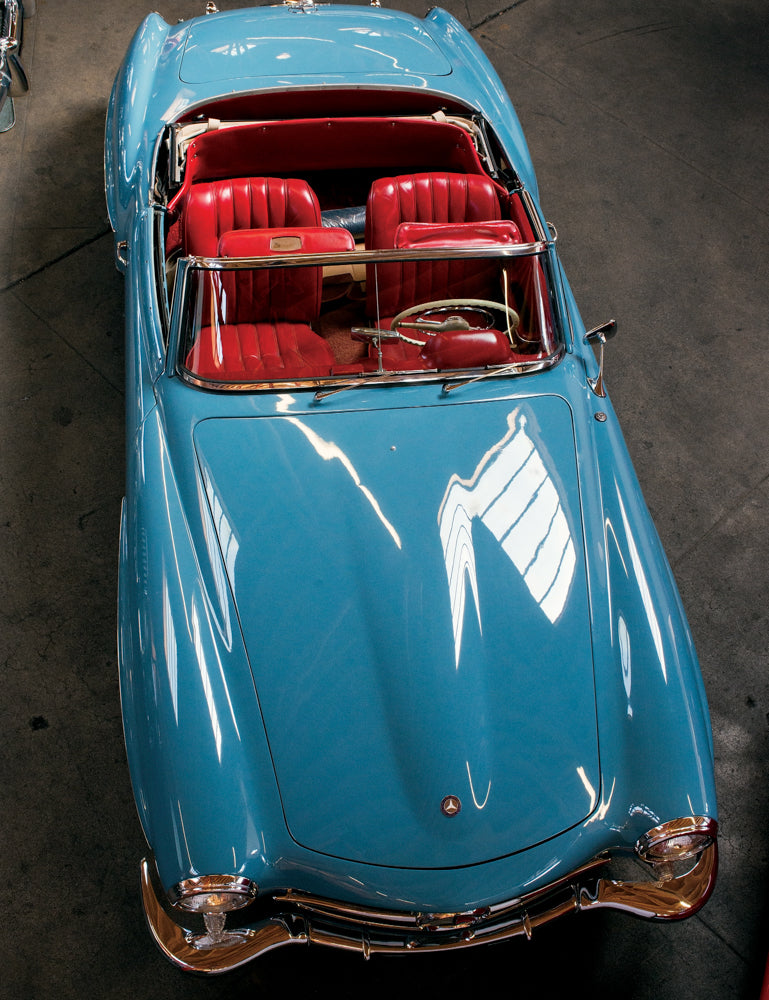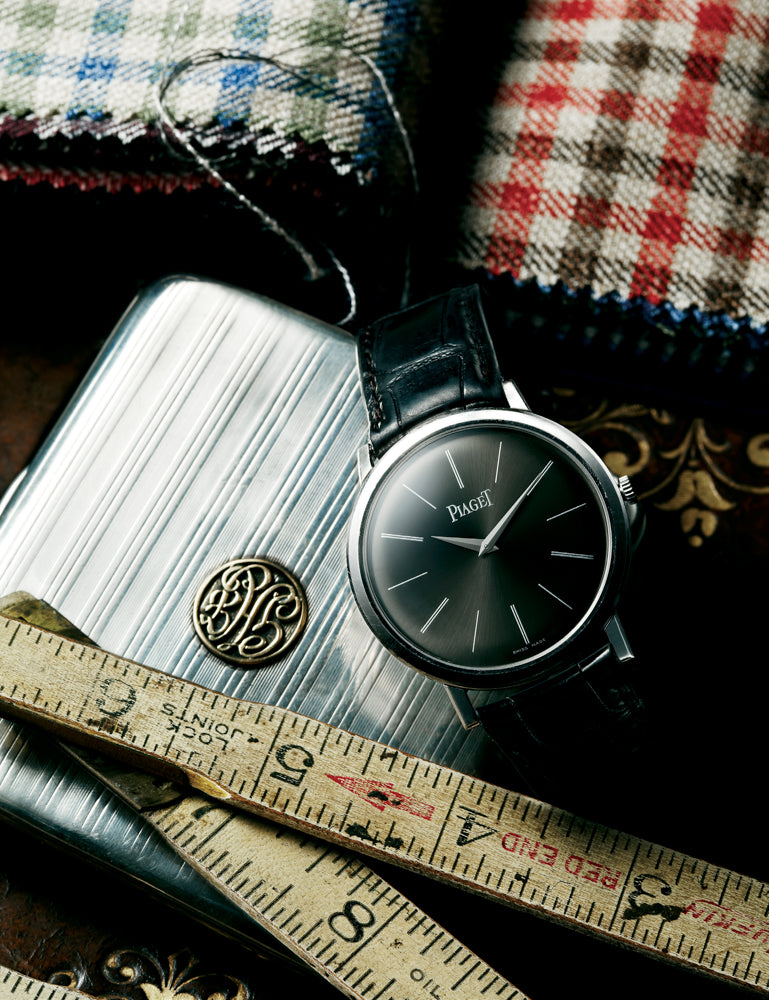
Heritage Classics
HERITAGE CLASSICS



HOW ONE MAN’S PASSION FOR VINTAGE CARS MADE HIS CALIFORNIA DREAM COME TRUE
In a city synonymous with automotive excess, Heritage Classics in West Hollywood is a temple of refined taste, known for restoring and selling some of the finest vehicles ever designed to the world’s most discriminating collectors. You won’t find the latest Lambo in owner Irving Herve Willems’s showroom, but you may find your dream car — a pristine 1970 Aston Martin DBS V8 Coupe, perhaps, or maybe a ’67 Ferrari 330 GTC. And it all started with a hatchback.
“The Renault was just a square,” Willems says of his first purchase, an early seventies French econobox. “I haven’t thought about that car in such a long time.” He fixed it up and sold it on, and it got him to where he is today. With each successive car, he flipped his way up the food chain, investing the proceeds of each sale into his next project. “I can’t even say when I first fell in love with cars,” Willems says. “It’s just always been a passion for me from the very beginning.”
In 1981, he decided to go pro, shipping himself and a 1964 Mercedes-Benz 200SE Cabriolet from a tiny suburb north of Paris to the sunny streets of LA, determined to make his fortune in rare exotics.


“I came for the weather, mostly,” he says, his accent still thick, “and also the opportunities. There’s nowhere better in the world to set up a classic car business.”
It’s hard to argue with him there. Since the early 1950s, Southern California has been the epicenter of American car culture, and the gentle climate, absence of road salt, and concentration of wealth have made it a prime hunting ground for collectors, both domestic and foreign. Willems’s client roster is proof of that. “Sixty-five percent of my clients are international,” he says. “California cars — everybody wants them!” Becoming the top vintage dealer in LA didn’t happen overnight, of course.
“The first ten years or so were extremely hard,” he says. In fact, it wasn’t until the early nineties that things really kicked into high gear. He credits his success to a handful of exceptional finds — a 1963 AC Cobra, a 1956 gullwing Mercedes-Benz, and some early sixties Porsches he describes as “perfect” — that grabbed the attention of high-profile collectors and solidified his rep.


In 1993, he opened the shop he works out of today, hired a crack team of mechanics, and got busy. “The people who work for me now have pretty much been here since then,” he says. “This is almost like a family business.”
At the end of the day, it’s the hunt he loves most. “The best part of the business is the buying. It’s exciting to find a new car. They’re always hiding someplace. I find the whole process of bringing them back to life and getting them into the hands of collectors to be highly satisfying.”
You can’t beat his marketing strategy, either. “The cars look beautiful in the shop, but it’s so much more exciting to see them on the road. When I take an Alfa Romeo up the Pacific Coast on a Saturday, on Monday morning I get calls from people wanting to buy it. It’s crazy.” Considering his brand, global database of moneyed car buffs, and proven eye for the undervalued, I wonder why he hasn’t expanded. An outpost in Palm Beach, perhaps? A pop-up in Doha?
“Why would I do that?” he asks. “I already have everything I want. People come to me for exquisite European cars from the fifties to the seventies, and I sell them to them.” Cars are his life, and life is good.




